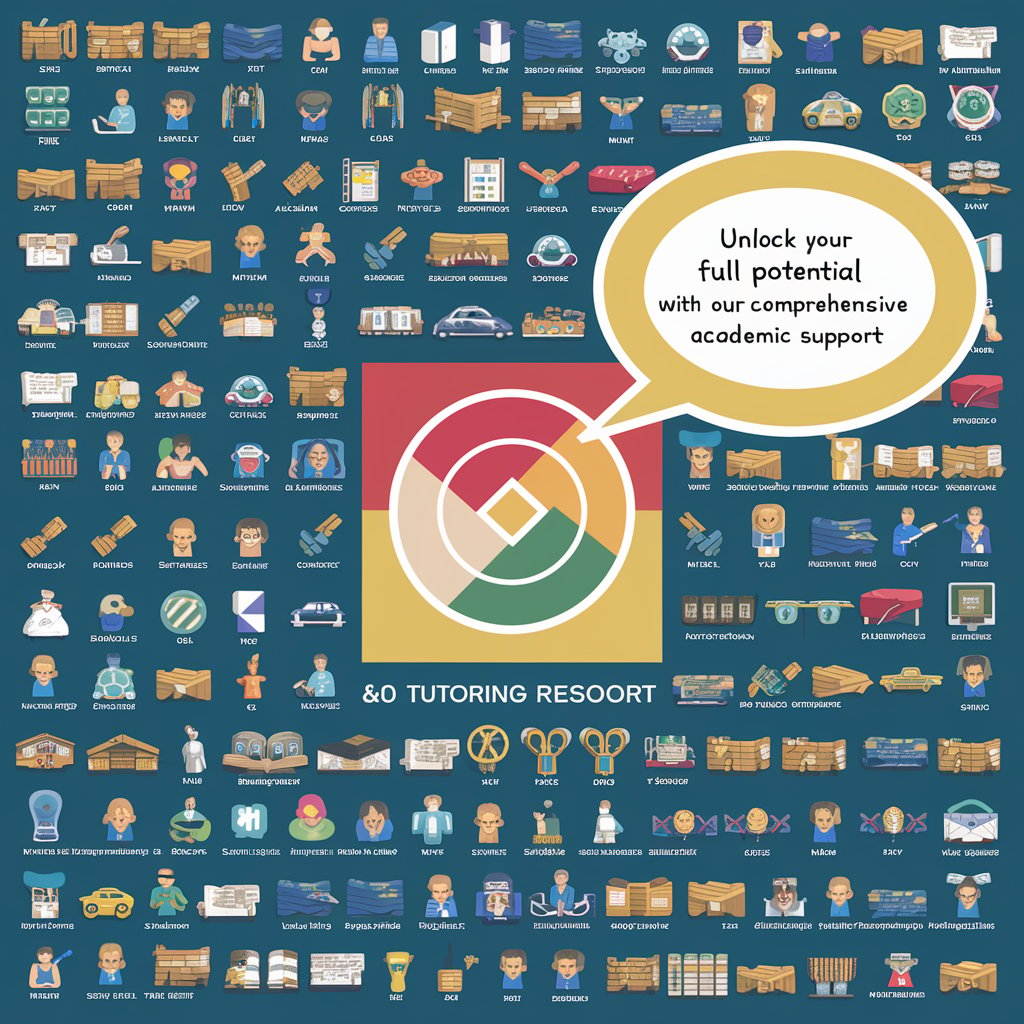
Importance of Academic Support
Types of Academic Support Services
1. Tutoring Centers
2. Online Tutoring Platforms
3. Peer Tutoring Programs
4. Academic Workshops
Benefits of Academic Support Services
4.1 Improved Learning Outcomes
4.2 Enhanced Study Skills
4.3 Boost in Confidence
How to Choose the Right Academic Support Program
Factors to Consider When Selecting a Tutor
6.1 Qualifications and Expertise
6.2 Compatibility and Communication
6.3 Scheduling and Availability
Tips for Maximizing Academic Support
7.1 Regular Attendance and Engagement
7.2 Clear Communication with Tutors
7.3 Setting Realistic Goals
Challenges Faced in Academic Support
8.1 Accessibility Issues
8.2 Financial Constraints
8.3 Quality Assurance
Innovations in Academic Support
9.1 AI-Powered Tutoring
9.2 Gamification in Learning
9.3 Personalized Learning Paths
Success Stories from Academic Support Programs
Conclusion
Academic support and tutoring play a crucial role in enhancing educational outcomes by providing personalized assistance to students. This article explores various resources available for academic support and tutoring, highlighting their benefits, challenges, and innovations in the field.
Introduction
In today’s competitive educational landscape, students often require additional guidance beyond the classroom to excel academically. Academic support and tutoring services fill this gap by offering tailored assistance to students of all ages and academic levels.
Importance of Academic Support
Academic support goes beyond mere tutoring; it encompasses a range of services designed to support students in achieving their academic goals. Whether it’s clarifying concepts, improving study habits, or preparing for exams, these services provide invaluable help.
Types of Academic Support Services
1. Tutoring Centers
Tutoring centers are physical locations where students can receive one-on-one or group tutoring sessions. These centers employ qualified tutors who specialize in various subjects and academic levels.
2. Online Tutoring Platforms
Online tutoring platforms have gained popularity due to their flexibility and accessibility. Students can connect with tutors remotely, access resources 24/7, and receive personalized learning experiences tailored to their needs.
3. Peer Tutoring Programs
Peer tutoring involves students helping each other in an informal setting. It promotes collaborative learning and allows peers to explain concepts in relatable ways, enhancing understanding.
4. Academic Workshops
Academic workshops focus on specific skills such as writing, research, or exam preparation. They often incorporate interactive activities and expert guidance to improve academic performance.
Benefits of Academic Support Services
4.1 Improved Learning Outcomes
Students who utilize academic support services often show improvement in grades and comprehension of challenging subjects.
4.2 Enhanced Study Skills
These services help students develop effective study habits, time management skills, and critical thinking abilities.
4.3 Boost in Confidence
By receiving personalized attention and overcoming academic challenges, students gain confidence in their abilities and approach to learning.
How to Choose the Right Academic Support Program
Selecting the right academic support program depends on several factors that can significantly impact its effectiveness for the student.
Factors to Consider When Selecting a Tutor
6.1 Qualifications and Expertise
Ensure that tutors possess relevant qualifications and expertise in the subject matter to provide accurate guidance.
6.2 Compatibility and Communication
Effective communication between tutors and students is crucial for productive learning sessions. Compatibility in teaching styles and personalities can enhance the tutoring experience.
6.3 Scheduling and Availability
Consider the flexibility of scheduling and availability of tutors to accommodate the student’s academic calendar and personal commitments.
Tips for Maximizing Academic Support
7.1 Regular Attendance and Engagement
Consistent attendance and active participation in tutoring sessions maximize the benefits of academic support.
7.2 Clear Communication with Tutors
Open communication about learning goals, challenges, and expectations helps tutors tailor their approach to meet the student’s needs effectively.

7.3 Setting Realistic Goals
Setting achievable academic goals with the support of tutors motivates students and fosters continuous improvement.
Challenges Faced in Academic Support
8.1 Accessibility Issues
Some students may face challenges accessing tutoring services due to geographical location, financial constraints, or disabilities.
8.2 Financial Constraints
Affordability of tutoring services can be a barrier for students from low-income backgrounds, limiting their access to academic support.
8.3 Quality Assurance
Ensuring the quality and effectiveness of tutoring services across different providers and platforms is essential for student success.
Innovations in Academic Support
9.1 AI-Powered Tutoring
Artificial Intelligence (AI) is revolutionizing tutoring by offering personalized learning experiences through adaptive algorithms and virtual tutors.
9.2 Gamification in Learning
Gamification techniques, such as interactive quizzes and rewards systems, make learning engaging and motivate students to achieve academic goals.
9.3 Personalized Learning Paths
Platforms that offer personalized learning paths based on student performance and learning preferences cater to individualized educational needs effectively.
Success Stories from Academic Support Programs
Highlighting success stories and testimonials from students who have benefited from academic support programs inspires confidence and encourages others to seek assistance.
Conclusion
Academic support and tutoring services are indispensable resources that empower students to overcome academic challenges, enhance their learning outcomes, and build confidence in their academic abilities. By embracing innovations and addressing challenges, these services continue to play a vital role in shaping successful educational journeys.
FAQs
1. How can I find affordable tutoring services?
2. What are the benefits of online tutoring platforms?
3. How do peer tutoring programs promote collaborative learning?
4. What role does AI play in modern tutoring services?
5. How can parents support their children’s use of academic support services?


